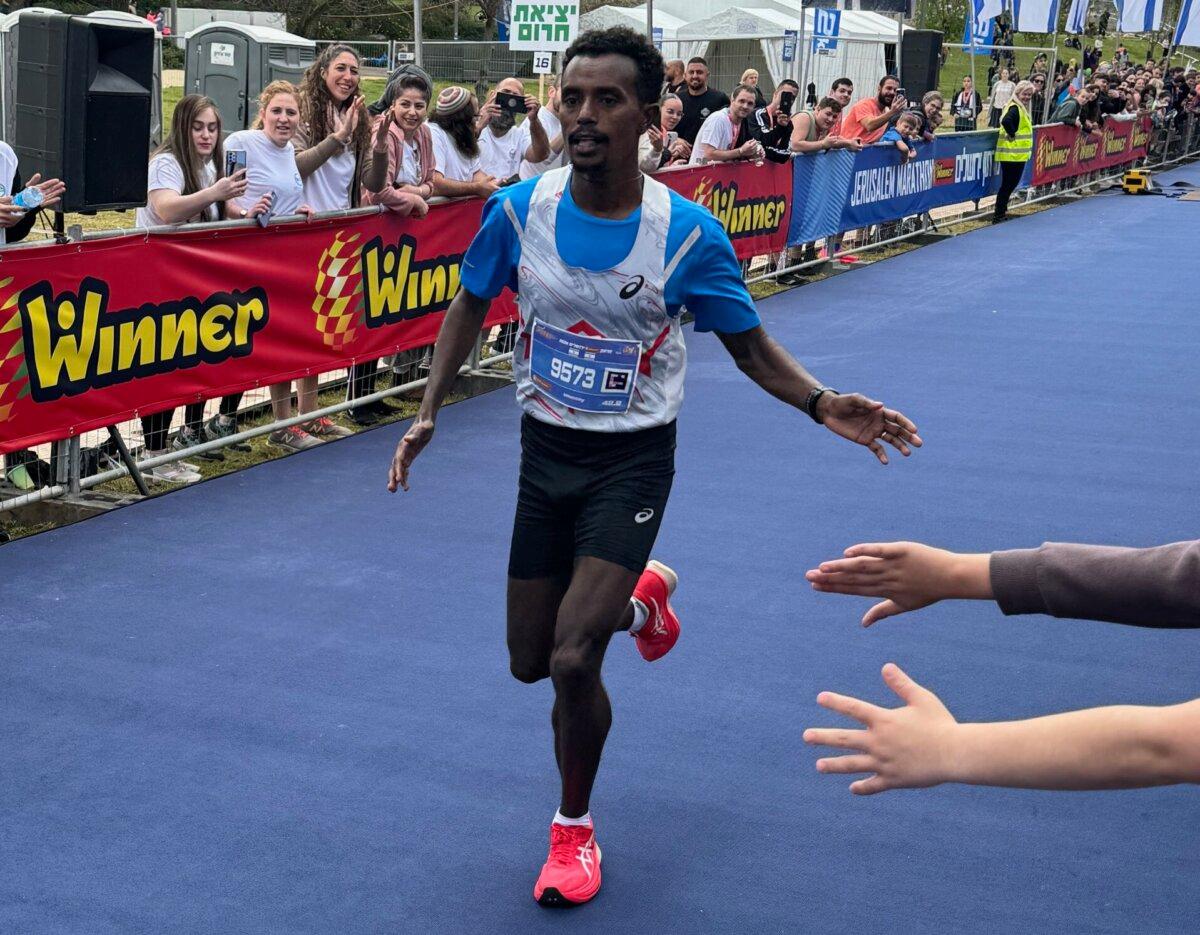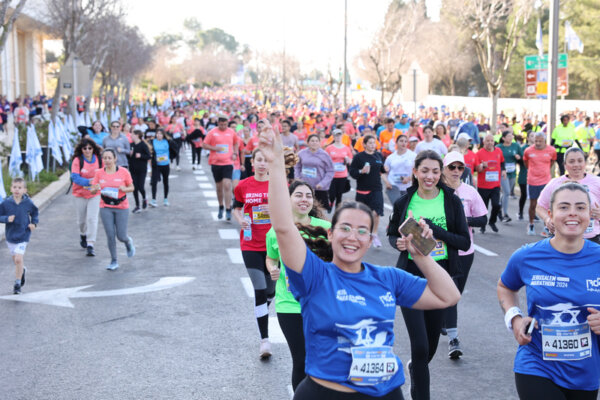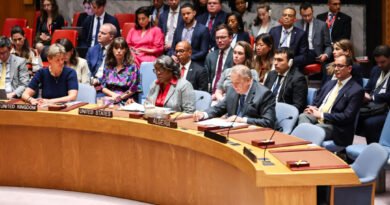Runners Show Respect for Israeli Hostages, Brave Jerusalem’s Streets for Annual Marathon Amid Ongoing Conflict
The event, which included races at shorter distances, attracted 40,000 runners and almost 50,000 onlookers.
In a display of resilience amid a five-month-long war, Israel welcomed its first major sporting event since Oct. 7. The Jerusalem Marathon saw a turnout of 40,000 participants, including 1,800 from foreign nations.
Despite ongoing conflict in Israel, the atmosphere at the finishing line in Sacher Park on March 8 was joyous.
The event featured music, drawing in tens of thousands of spectators along the 26.2-mile route. Runners reunited with loved ones after completing their races for a celebratory gathering.
Many participants chose to run shorter distances such as the half marathon, 10K, and a 5K family fun run.
Jerusalem Mayor Moshe Lion expressed the importance of carrying on with life. The annual marathon, a tradition since 2011, with the exception of its cancellation in 2020 due to the pandemic, symbolizes the resilience of the city and its inhabitants.
Israel continues to mourn the victims of the Oct. 7 tragedy and the fallen soldiers from subsequent events.
“We must continue with our lives,” Mayor Lion stated after the marathon, emphasizing the city’s determination to move forward amidst challenges. He lauded the significant turnout of 40,000 individuals, demonstrating unity and resilience across the country.
Security measures were robust to ensure smooth operations, with no disruptions reported during the event.
The impact of the war and global apprehensions about Israel’s military actions weighed heavily on the country’s tourism industry, acknowledged Mr. Lion.
Despite the absence of top international athletes, the race saw predominantly Israeli participants, resulting in adjusted finish times. The course record, set by Kenyan Ronald Kurgat in 2014, remained unbeaten.
Rebuilding the tourism sector will take time, Mr. Lion remarked optimistically, highlighting plans to attract visitors, particularly Jewish tourists during Passover.
The decision to proceed with the marathon entailed a deliberative process, considering the prevailing circumstances. Organizers aimed to uplift morale and demonstrate resilience through the event.
Out of the 40,000 participants, around 1,500 completed the full marathon, highlighting the community’s unwavering spirit.
“This event is a testament to the strength and determination of our nation,” said a marathon spokesperson, emphasizing the significance of unity and solidarity during challenging times.






